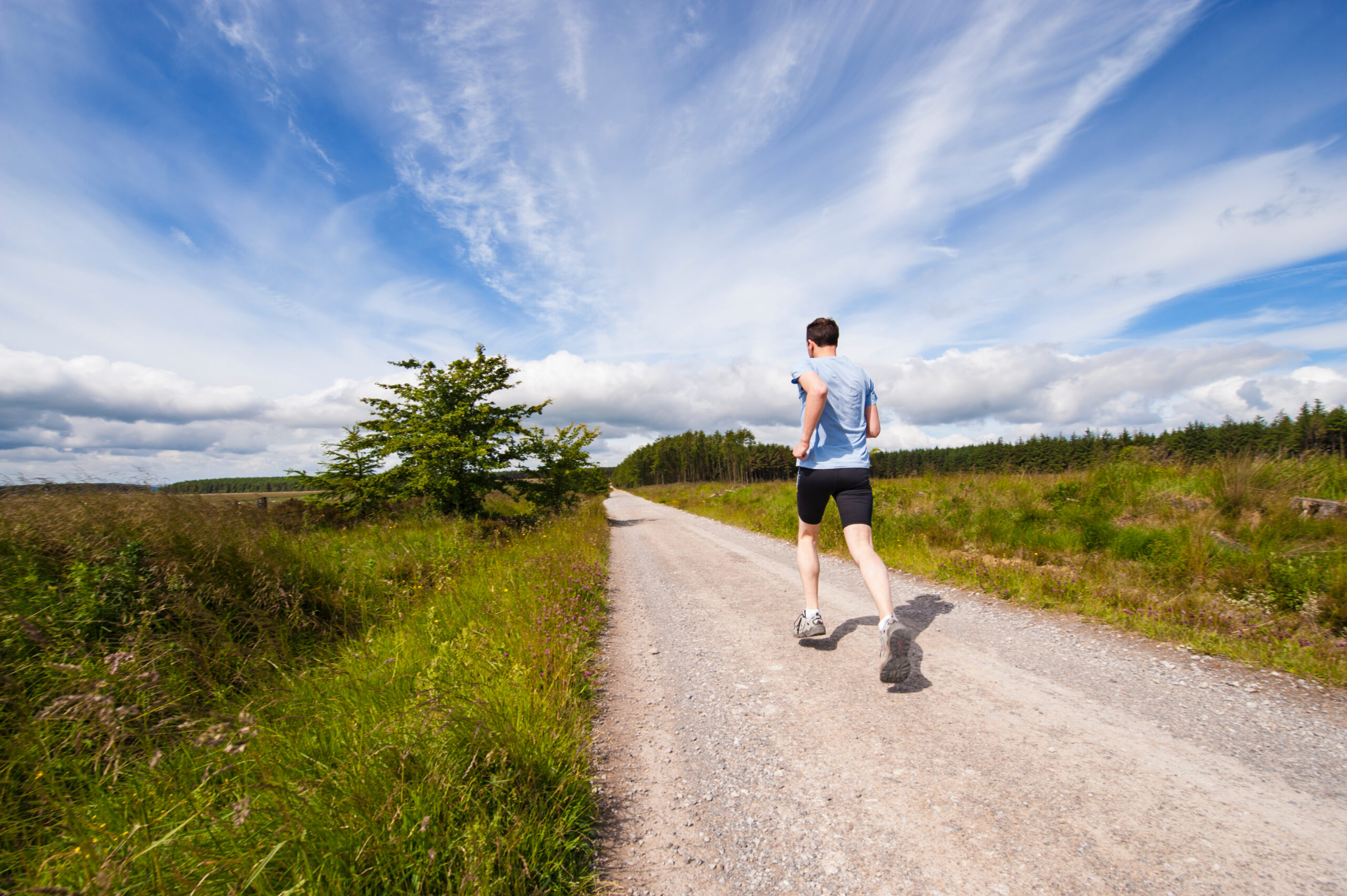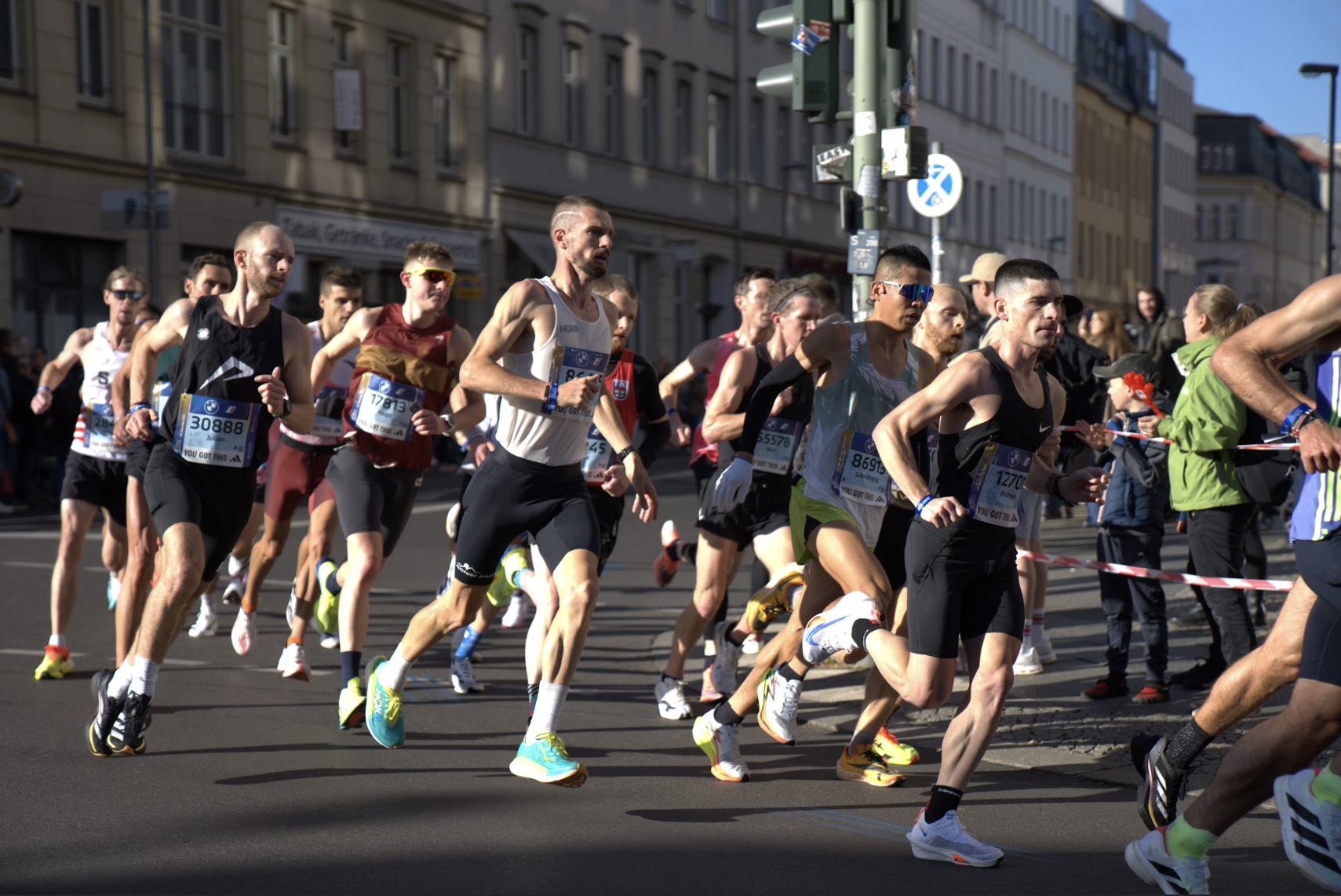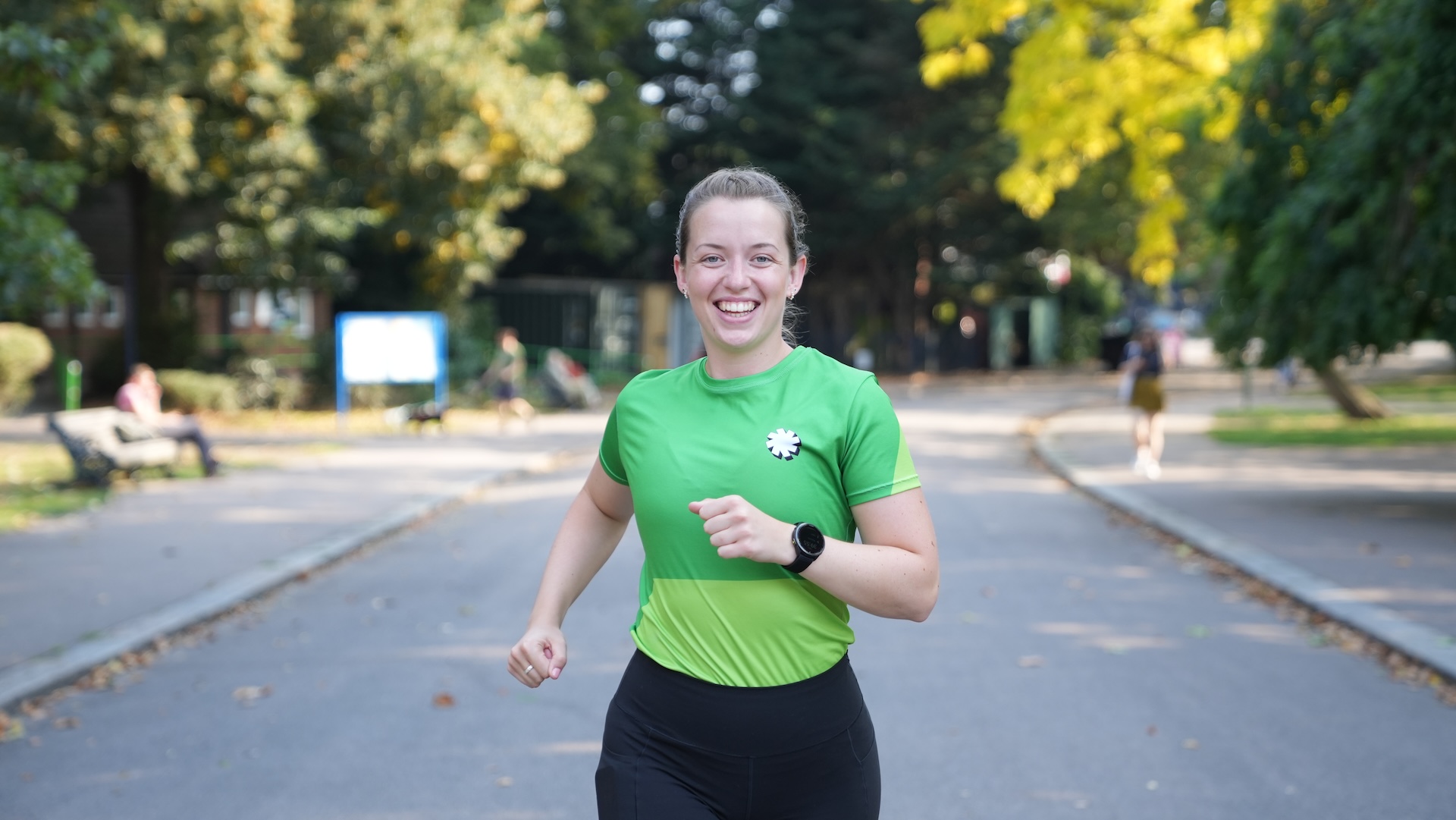10 Things Not To Do Before You Run

While we always see running as a positive thing to do, there are some things NOT to do before you lace up your shoes and get going… With that in mind, let us lay out the don’ts to help you get the best out of your runs.
1. Don’t ignore niggles
“It’ll be fine…”
Have you ever said that about a niggle before heading out for a run? If so, you’re almost certainly not alone, but running with acute aches and pains will probably not be fine and do you no favours. Instead, those niggles are likely to develop into more serious injuries that could even cause you lasting damage.
So, instead of powering through a niggle to fit in that one run, reassess your priorities and take some time to rest and let your body recover. Having that break from running now could save you from having to take even more time out from the sport in the longer term, not to mention lots of trips to see your physio or doctor.
The same can be said for illness. If you’re feeling particularly unwell, to the point where just getting through the day feels like a struggle, then avoid exerting yourself by going for a run – even if you plan to go easy. Take as long as your body needs to recuperate and build back to full health before kicking out on another run.
In short: listen to your body, and don’t persist on a run when it doesn’t feel right to do so.
2. Don’t wear the wrong kit
What you wear has a big impact on the effectiveness and comfort of your runs, so remember to factor in clothing choice as part of your pre-run routine.
If you opt for non-sports clothing like cotton T-shirts or casual trousers, you’re likely to feel restricted and awkward, so it’s definitely worth getting some decent running kit that you can afford. This includes clothing made from lightweight, sweat-wicking fabrics that help to keep you dry and your body temperature in check, and which enable you to move freely and confidently while running.
Running-specific shoes and even socks are also a game changer when it comes to helping you run efficiently, smoothly and blister-free, so any investment you make in this realm will be worth it. If you want some solid footwear advice, check out our top running shoes of 2023…
3. Don’t eat the wrong foods
What you eat can have quite an impact on your running performance and experience – especially if you’re heading out for a long run or race.
Above all, try to avoid eating foods that are high in fat, protein and fibre too close to your run. Fat and protein (such as cheese, dairy foods and red meat) take longer for the body to digest, so could sit in your stomach while you run and cause unwelcome discomfort and issues along the way. Not what you need at any time, especially if you’re out to chase a PB!
Although fibre is beneficial for the body – helping to normalise bowel movements, maintain healthy blood sugar and cholesterol levels and more – eating too much too close to a run can also have an adverse effect on how you feel. As with fat and protein, fibre slows digestion, sitting in your system for longer than you’d like and making you feel sluggish and queasy mid-run. With that in mind, try to eat smaller amounts of fibre throughout the day, rather than all in one go.
It goes without saying that spicy foods are also best avoided before a run, as they can again interfere with your gastrointestinal system and even cause heartburn.
Instead, choose to eat simple, digestible carbs before your run or race – such as oats, natural energy bars, white rice, pasta or bread, or fruit, such as a banana – and aim to leave a space of at least two hours between eating and running.
4. Don’t avoid food altogether
While eating the wrong foods can be detrimental to your run, not eating anything at all can also impact your running performance.
Some runners go out fasted – whether deliberately or for religious reasons, such as during Ramadan – which means running without eating anything for a long period beforehand. However, if you have the choice to eat something in advance, it’s sensible that you do – even if it’s just a small snack such as a piece of fruit. This is particularly important if you want to run for an extended period of time, or at a higher intensity.
We store carbs in the body as glycogen, and as we run we tap into this glycogen store for the energy our bodies need to keep moving. So it’s simple: if you’re depriving your body of the fuel it needs, you’ll be running on empty stores and unable to run at your best.
Female runners especially should fuel appropriately, as the female physiology can increase the risk of nutrient deficiencies and impact the way nutrients are used during the menstrual cycle.
5. Don’t skimp on sleep
If you don’t get enough sleep, you’re compromising your body’s ability to recover from previous training and perform well for your next run.
When we sleep, the pituitary glands in our bodies release a chemical into the bloodstream called human growth hormone (HGH). HGH helps to strengthen bones, convert fat into fuel and repair cellular damage in our muscles brought about during exercise. 1 This means that sufficient sleep – where HGH does all its work – replenishes and restores your body in time for the following day’s efforts.
If you don’t get the recommended seven and a half to eight hours of sleep each night, you’ll have reduced levels of HGH and negatively impact the speed at which your body can recover from training. This means you’ll be pushing on with damaged cells that could accumulate and eventually lead to an injury or illness, especially since a lack of sleep can also jeopardise the immune system.
6. Don’t drink too much caffeine
There’s a fine line when it comes to running and caffeine, and knowing how to find the happy medium for you is key.
Much evidence suggests that caffeine – found most commonly in coffee, tea, energy drinks and some energy gels – can enhance running and cognitive performance, with 3-6mg of caffeine per kilogram of body mass being enough to delay fatigue and keep our minds and bodies alert. 2
However, take on too much caffeine and you’ll start to experience some side effects, without any additional benefit to your running. These side effects include an elevated heart rate, headaches and dizziness, feelings of anxiety, stomach cramps and an increased need to rush to the toilet.
So, be mindful of your caffeine consumption before you lace up for that run!
7. Don’t ignore the weather
Sometimes, all we want to do is chuck on some kit, rush out the door and get running.
This is great, but not paying attention to what the weather is doing could really affect your level of enjoyment on that run. If it’s cold, wear lightweight layers that you can gradually remove and carry with you as you start to warm up, with accessories like gloves and a hat or a warm layer for your neck. By contrast, if it’s hot and sunny, a loose layer with sunglasses and a cap or visor would be a sensible choice. Wear too much or too little for the conditions and your run could be pretty uncomfortable.
If the weather is too extreme – for example, during a heatwave or when there is snow or ice on the roads – it may be more sensible for you to train indoors on a treadmill, or take a rest day. There is no harm in taking a break to be safe!
Talking of treadmill running, you’ll still need to dress for the conditions. Even on a cold day – and unless you have an excellent fan or air conditioning – you’re likely to warm up very quickly when working out inside!
8. Don’t do the same run each time
Humans are creatures of habit, so it can be easy to run the same route at the same pace day in, day out.
Getting out to run is always a great thing, but if you are itching to improve it’s worth mixing up the distance you run and the pace you run at – otherwise, you’ll likely hit a training plateau and perhaps even get bored. Combine plenty of lower intensity running, which builds aerobic endurance and helps your cardiovascular, respiratory and muscular systems to work more efficiently, with some higher intensity running – such as intervals – which helps to improve your speed, strength and stamina.
If you’re stuck for ideas on how to add variety to your running, apps such as Runna can build you bespoke, easy-to-follow training plans that are framed around you and your running goals.
9. Don’t forget your running watch
A GPS watch is a great companion for any runner.
Not only do these watches track your distance, time and pace, but so too do they give you a good insight into your overall health and fitness. Knowing things like your average heart rate, training readiness score and running metrics – including your cadence and stride length – can be a useful and interesting way of monitoring your running progress and identifying any areas for improvement.
Running, of course, isn’t always about the stats – sometimes, it’s just about getting outside and feeling the mental and physical benefits of the sport, number-free. But if you want a better picture of how you’re doing as a runner, wearing a GPS watch is worth it.
There are lots of GPS running watches on the market to suit any budget. If you want help finding the one that’s best suited for you, take a look at our low-down on the latest Garmin watches…
10. Don’t go in with a negative mindset
No matter how much you love running, it can be hard to stay motivated, and every now and then we can doubt our ability to keep going, get faster or hit our running goals.
If you get trapped in a negative mindset, it can become increasingly harder to navigate your way back out. This could affect how often or how far you run, your enjoyment of the sport and your overall running performance.
Something you can practise to boost your optimism and mental toughness as a runner is visualisation – a sport psychology technique where you consciously build positive thoughts and imagine yourself succeeding. These could be mental pictures of you running a PB or smashing a tough interval session.
Visualisation also gets you to imagine potential obstacles and problems along the way, and how you overcome them. Through this mental process, you’ll start to feel more positive and motivated on your runs and in life as a whole.
By understanding what not to do before a run, you can more easily build good running habits that will pay dividends. Will you be more mindful of your pre-run habits going forward?




























Running News
Ingebrigtsen Stars at World Athletics Indoor Championships 2025 – Plus All The Winners!
Sam Ruthe Is First 15-Year-Old To Run A Four-Minute Mile!
Eliud Kipchoge Will Run The 2025 Sydney Marathon!